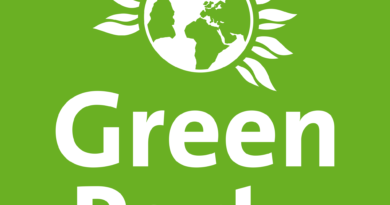PRESS RELEASE : New early years framework published [March 2012]
The press release issued by the Department for Education on 27 March 2012.
A slimmed down and more focused Early Years Foundation Stage (EYFS) for children aged from birth to 5-year-olds was today published by Children’s Minister Sarah Teather.
The new EYFS, which will take effect from 1 September 2012, focuses on getting children ready for education and increasing the attainment of all children, particularly those from deprived backgrounds.
The government also today pledges to go further. Where there are examples of regulation and paperwork that are not necessary to safeguard children, drive up quality or promote child development, they will be removed.
The revised curriculum reduces the number of early learning goals from 69 to 17, gives more focus to the main areas of learning that are most essential for children’s healthy development and simplifies assessment at age 5. It also provides earlier intervention for children who need extra help with a progress check at age 2.
The government has reduced paperwork for professionals to allow them to exercise their judgement, for example by removing the requirement for written risk assessments for all activities.
Children’s Minister Sarah Teather said:
What really matters is making sure a child is able to start school ready to learn, able to make friends and play, ready to ask for what they need and say what they think. These are critical foundations for really getting the best out of school.
It’s vital we have the right framework to support high quality early years education. Our changes, including the progress check at age 2, will support early years professionals and families to give children the best possible start in life.
People working in the early years, teachers, parents, and other professionals support our proposals, which keep the best of the existing framework but slim it down.
This is the first part of our reforms to the early years. Where we find examples of regulation and paperwork that are not necessary to safeguard children, drive up quality or promote child development, we will remove them. We will continue to help practitioners to focus on children’s healthy development.
The reformed EYFS builds on the independent advice of Dame Clare Tickell. Dame Clare Tickell said:
I am very happy to endorse the new EYFS. It closely follows my recommendations, building on the strengths of the current framework and making key improvements in response to the concerns of many people working in the sector.
There is a compelling reason for reforming the EYFS while retaining its overall shape and scope: the evidence is clear that there is a strong positive link between high quality early education and children’s healthy progress through school and into adulthood. To secure that link, and to ensure that all children grow-up healthy, safe, and resilient, and develop the ability and curiosity to learn, we need the EYFS.
Together with a more flexible free early education entitlement and new streamlined inspection arrangements, the new framework is an integral part of the government’s wider vision to free professionals to focus on their interaction with children.
Last summer, the government asked Professor Cathy Nutbrown to consider how we might strengthen the early years workforce. Her report is due in June, and the government will carefully consider her recommendations – along with international evidence on staffing levels and qualifications – as we continue to promote early years provision that is high quality and cost effective to parents.
People working in the early years will get additional guidance and information so they feel confident to deliver the new EYFS. And a summary of the EYFS will be available for parents so they know what their child will be learning and what they should expect from their child’s early years setting.
The coalition government is committed to investing in the early years and is expanding free childcare to many 2-year-olds as well as all 3- and 4-year-olds. The new EYFS will ensure that good quality early learning benefits all children, as the government believes this can make a real difference to success in later life.



